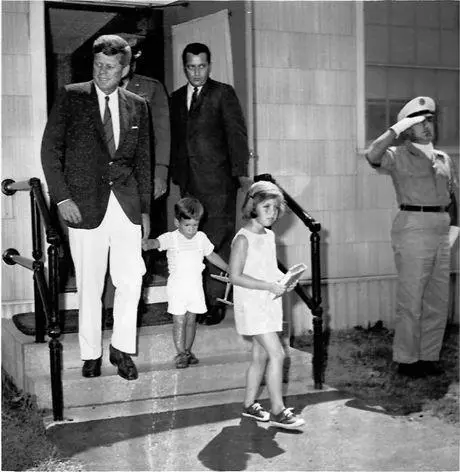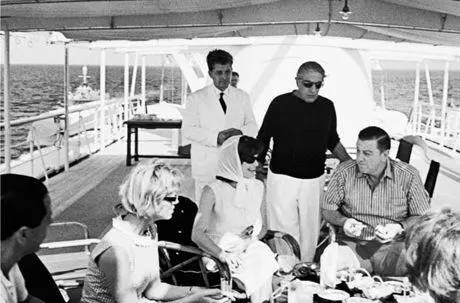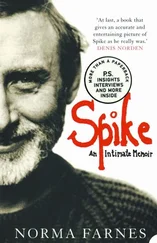By this time, field office agents had been brought in to supplement Paul Landis and me, so we didn’t have to work twenty-four hours a day.
I had not left Otis since we arrived the morning of August 7, and had taken over one of the bedrooms in the suite so I could at least try to get some sleep. I wanted to make sure that if Mrs. Kennedy needed anything in the middle of the night, though, that there was a familiar agent there to help her, so I asked Tommy Wells from the children’s detail to stand outside her door throughout the night.
I lay in bed, rarely sleeping, my mind going over and over the possibilities should Patrick not make it. At 4:15 A.M. on Friday, August 9, I was awakened by the sound of the phone ringing.
“Clint Hill,” I answered.
“Clint . . .” It was Jerry Behn, the Special Agent in Charge of the White House Detail. “We have just been informed that Patrick has passed away.”
Tears welled in my eyes as I tried to keep my voice steady.
“He died at four-oh-four this morning. The president wants Dr. Walsh to tell Mrs. Kennedy. Fortunately, you don’t have to do that. But I wanted you to be the first to know.”
“Thanks for letting me know, Jerry.”
Before I could even digest what had happened, I heard the phone ringing outside my room in the area we had set up as the Secret Service Command Post. I could hear Tom Wells on the phone, getting the same awful news I had just received. A few minutes later, I heard Agent Wells call Dr. Walsh. There was no going back to sleep, so I got up and walked into the hallway.
I looked at Tom and could tell that he too was having a tough time holding it together.
“I guess you heard the news,” he said to me.
“Yeah. Behn called to tell me.”
“You know, Clint,” Tom said, “Nurse Lumsden—the night duty nurse—was going in and out of Mrs. Kennedy’s room all night. And each time she came out I’d ask, ‘How is she doing?’ And every time the answer was the same. She’d say, ‘Mrs. Kennedy is really having a tough time tonight. She’s been so restless all night, just tossing and turning. She just can’t seem to get to sleep.’ It happened all night long.”
Tom paused. He looked down, and gulped as he fought the emotions.
“Then, at four o’clock, Nurse Lumsden came out and said, ‘She’s finally gone to sleep. Just now. She just fell asleep.’”
He looked up at me to see if I understood what he was saying.
I nodded.
“And then,” Tom said, “it wasn’t but a few minutes later that I got the call.”
“Thank you, Tom. I’m so glad you were out here. I know she appreciated it, too.”
My heart ached. My whole body ached. I wanted to go in and hold Mrs. Kennedy, to tell her how sorry I was. How much I felt her loss. But she needed to sleep. She had been fighting all night, just as her baby son was fighting for his life.
I went back to my room, closed the door, and put my head in my hands.
This was the third child she had lost. It was far more than any woman should ever have to bear.
AT 6:30 A.M., Dr. Walsh arrived and broke the tragic news to Mrs. Kennedy.
She was devastated. It was heartbreaking to see her in such emotional pain, and I felt so helpless. I was supposed to protect her. But there was nothing I could do, nothing anyone could do to protect her from the pain of losing a child. I was thankful that Nancy Tuckerman and Pam and Mary and Louella Hennessey were there to comfort her. It was all I could do to stand outside the door, and hold my feelings inside.
When President Kennedy arrived later that morning, he looked like he had been to hell and back. The doctors had called him, knowing death was imminent. They had released Patrick from the lines and tubes, and President Kennedy was able to hold his son in his arms, for the first and last time.
I looked at the president and said, simply, “My condolences, Mr. President.”
“Thank you, Clint,” he said.
I turned the knob and opened the door to Mrs. Kennedy’s room. He walked in and I quietly closed the door again. My heart wrenched with anguish as I stood outside the room, knowing the pain the president and Mrs. Kennedy were sharing inside.
THE FUNERAL SERVICES for Patrick Bouvier Kennedy were held on Saturday, August 10, in Boston, with Cardinal Cushing presiding. Paul Landis and I stayed with Mrs. Kennedy at Otis for, still weak from the Caesarian operation, she was unable to attend. She couldn’t attend the funeral of her baby son.
On Sunday, August 11, the president brought Caroline in the morning, and John in the evening, which seemed to boost Mrs. Kennedy’s spirits more than anything. The next day he brought the two of them together, before he had to return to Washington to get on with his job as President of the United States.
My heart ached for her as she continuously tried to maintain her composure. Nancy, Pam, and Mary, all close friends, attempted to support her as best they could. Her sister, Lee, finally arrived from Europe, and she seemed to help Mrs. Kennedy more than anyone did.
The president continued to come and visit as often as possible, while juggling his own grief, visiting Caroline and John, and dealing with world issues, which didn’t stop for the death of a president’s son.

Clint Hill with President Kennedy and children as they exit Otis AFB Hospital
I had been with Mrs. Kennedy through the births of two sons and the death of one. I couldn’t imagine anything more difficult.
21
Onassis and the Christina

Sue Roosevelt, Mrs. Kennedy, Aristotle Onassis, and Franklin D. Roosevelt, Jr. aboard Christina
After the death of Patrick, the other agents and I noticed a distinctly closer relationship, openly expressed, between the president and Mrs. Kennedy. I first observed it in the hospital suite at Otis Air Force Base but it became publicly visible when Mrs. Kennedy was released from the hospital, a week after the birth. With press photographers snapping away, President and Mrs. Kennedy emerged from the hospital suite hand in hand. It was a small gesture, but quite significant to those of us who were around them all the time. Prior to this, they were much more restrained and less willing to express their close, loving relationship while out in public. The loss of Patrick seemed to be the catalyst to change all that.
The president had to return to Washington, but Mrs. Kennedy and the children elected to stay for the rest of the summer—as they had planned—at the Cape. It was the best place for her to recuperate and day by day, her physical strength began to return. Emotionally, however, she was drowning in sorrow. The loss of her son was constantly on her mind, and she seemed to become more and more depressed.
She continued to write notes and request information be passed on to various individuals, but you could tell her heart wasn’t in it. She spent time with the children, but for the most part remained alone and secluded in her room in Brambletyde. There was nothing anybody could say or do to ease her pain. We simply hoped that time would heal this tragic wound.
The president came as often as possible to Hyannis Port, midweek for one night in one case and for an extended stay over Labor Day weekend. Not only was he taking great pains to be supportive to Mrs. Kennedy, but I noticed that he was paying more and more attention to the children than ever before. He started taking John with him to visit Ambassador Kennedy or out to the Allen Farm to watch Caroline ride. He would go swimming with John and Caroline in the ocean—watching with delight as they jumped to him from the decks of the Honey Fitz. Taking Caroline to Sunday church services with him became a regular occurrence. Having Caroline and John ride on the helicopter from the Kennedy compound to Otis Air Force Base with him as he was departing for Washington on Air Force One became more common. This was all new.
Читать дальше













